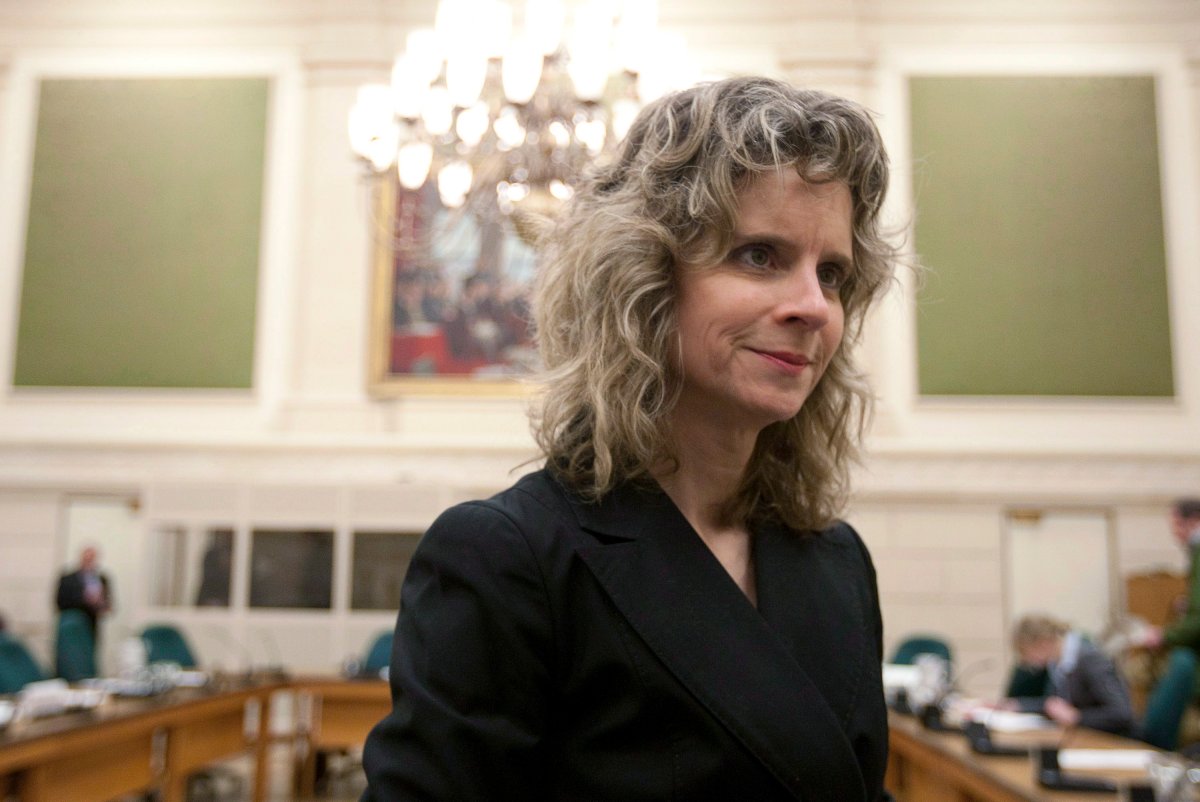This summer, we spoke with Canada’s officers of Parliament. We profile each in an eight-part series. Read them all here.

The chorus has been ringing from the lobbying commissioner’s office for years.
Karen Shepherd, Canada’s lobbying commissioner has taken her message before parliamentary committees and to the media: she needs the ability to impose fines on people breaching the lobbying code and act.
As it stands, the act she administers offers two extremes in terms of sanctions. For minor transgressions, such as late filings, the commissioner can educate and monitor individuals in violation. For more serious breaches, such as failing to register as a lobbyist, she can refer the case to the RCMP with the potential of fines and jail time.
“The idea of administrative monetary penalties would be to have some kind of flexibility or bridge between the two extremes,” Shepherd said during an interview this summer in her Ottawa office. “So there would be a continuum of progressively more severe sanctions which might be more appropriate to the offence in question.”
It’s all in the interest of increasing transparency, the slight and soft-spoken commissioner said.
“That’s the objective of the act … I think the act plays a crucial role in making transparent the communications happening with government on the various policies, programs, regulations and bills.”
Shepherd administers one law and one code. The Lobbying Act regulates lobbying activities, while the Lobbyists’ Code of Conduct sets ethical standards for lobbyists to follow.
She’s been at it for four years now, but choosing to accept this position was not a decision she took easily after spending more than 25 years in the public service.
“I chose to become a public servant because I wanted to use my educational background to serve Canadians,” said Shepherd, who spent her time in government working for a slew of departments in a number of positions including program management, policy operations and human resources. “But I had to leave the public service to take this job because it’s an independent position.”
Still, when she was asked to help set up what would eventually become the Office of the Lobbying Commissioner, and then lead that office, it was “the right challenge,” she said.
In terms of tests, becoming a public figure was among the most difficult she faced in her career.
“I’ve gone from, in some respects, working behind the scenes to being very visible,” she said. For a public servant, that’s probably the biggest challenge.”
But considering the weight of the legislation she would be in charge of administering, she couldn’t think of anything more important.
- Norad looking to NATO to help detect threats over the Arctic, chief says
- Alberta to overhaul municipal rules to include sweeping new powers, municipal political parties
- Canada, U.S., U.K. lay additional sanctions on Iran over attack on Israel
- Trudeau says ‘good luck’ to Saskatchewan premier in carbon price spat
“Lobbying is legitimate, but it needs to be done in a transparent manner,” she said.
One of the primary tools for ensuring transparency, Shepherd said, is the registry of lobbyists. The registry, available online, shows clearly which organizations are lobbying which government departments about which subjects.
Currently, more than 5,200 lobbyists are registered with her office. Each has to file monthly reports detailing scheduled meetings with public office-holders including ministers, MPs, senators, members of the RCMP and political staff, among others.
To that end, the commissioner has also recommended tightening reporting requirements, including listing all lobbyists present at meetings, rather than the status quo, which only requires the reporting officer to be named.
Shepherd’s office investigates all complaints that land on her desk. She has referred 10 files to the RCMP since she took office in 2009. Only one so far has resulted in a charge or conviction, though the police force is still considering three.
A landmark conviction happened earlier this year, when a New Brunswick man failed to register as a consultant lobbyist, as required by law.
Andrew Skaling, a former Conservative staffer, lobbied on behalf of Canadian Network of Respiratory Care and ended up with a $7,500 fine.
“What happened (in that case) was further evidence that there are consequences to not complying with the Lobbying Act,” she said. “In terms of if it’s a trend, that’s something you might have to ask the RCMP.”
The rarity of these charges and convictions, however, supports the commissioner’s argument that the office needs some sort of middle ground in terms of sanctions, critics of the lobbying system argue.
These transparency advocates also stress there are more loopholes than just Shepherd’s inability to slap lobbyists with administrative fines.
Above and beyond the commissioner’s enforcement record, which critics say is too low, there are gaps in the legislation that can allow even a cabinet minister to turn around and lobby the government immediately after leaving office, they say.
The act bans public office holders from lobbying for five years after leaving office, but the loophole, critics say, is in the fact the law only requires people who spend more than 20 per cent of their time lobbying to register.
Given that, some lobbyists can slip under the radar, critics say.
Another potential loophole exists wherein the rules compel lobbyists to register “oral and arranged” meetings. That means a chance meeting between a public office holder and a lobbyist wouldn’t need to be included in monthly reports detailing lobbying activities.
Closing these loopholes, critics say, would help lobbying in government become more open.
Shepherd is preparing to launch a review of the Lobbysits’ Code of Conduct this fall. Whether any of her recommended changes will take hold remains to be seen.
“My experience is that lobbying plays a very important role in government decision-making,” Shepherd said. “It’s just it needs to be done in a transparent manner.”



Comments